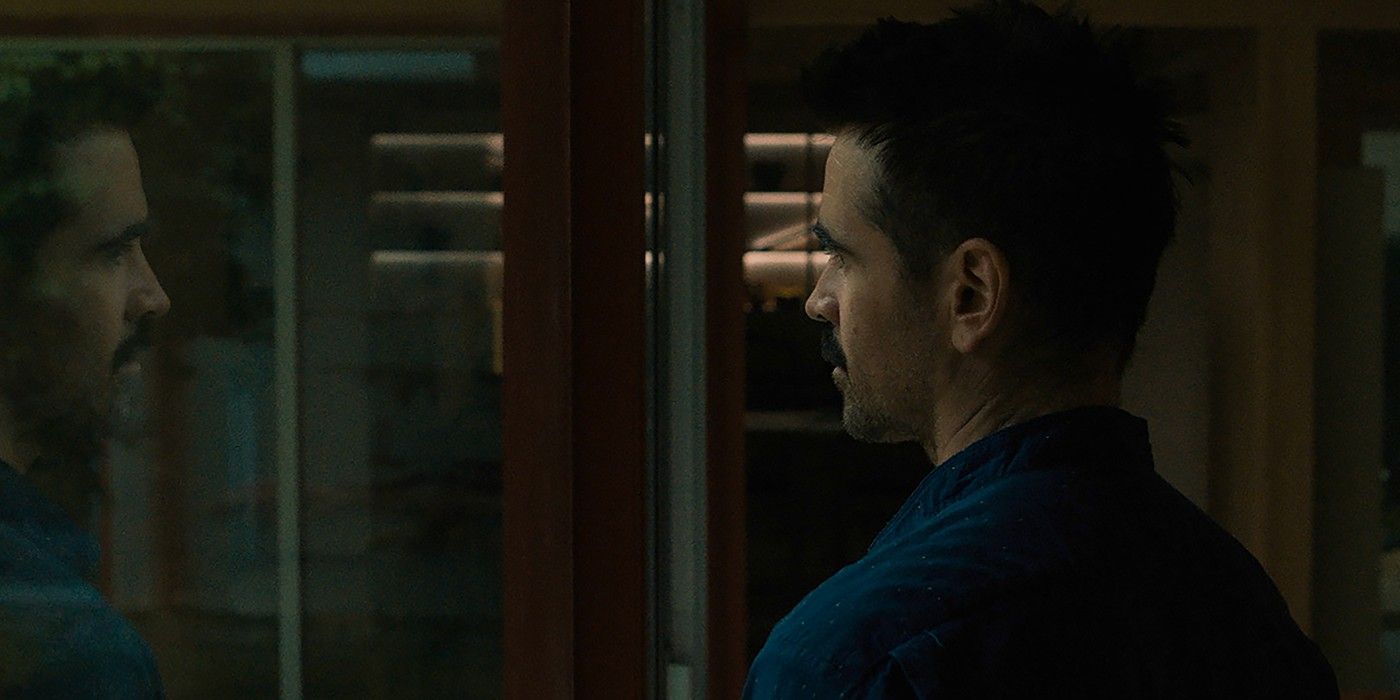Science fiction as a genre has the ability to reveal intimate aspects of the human condition while also exploring fantastic stories set in far futures or distant worlds. While modern blockbusters tend to focus on the spectacle of the genre that is provided with the magic of visual effects, Kogonada's sophomore feature, After Yang, takes the genre at its most minimalistic and personal, using artificial humans to explore everything from memories, to identity, to culture, in the best movie about A.I. in years.
Kogonada, the video essayist turned director, already navigated how people relate to places in his emotional film debut, Columbus, but After Yang aims higher by exploring how we related to each other, to ourselves, and to the larger world. The film is set in a future where we don't just consider our electronic devices to be our most prized possessions, but to literally be family members. Colin Farrell plays Jake, a tea seller who bought a refurbished "technosapien" A.I. to serve as a big brother and a cultural teacher for his young daughter he and his wife Kyra (Jodie Turner-Smith) adopted from China. Yang (The Umbrella Academy's Justin H. Min) is mostly meant to keep Mika (newcomer Malea Emma Tjandrawidjaja) connected to her roots by providing "Chinese fun facts" but ended up being responsible for raising her with both parents busy at work.
It takes a while before the movie makes it clear that Yang is not human. Sure, he seems a bit distant when he takes longer than usual to take a family photo in the opening scene, and he doesn't seem to realize when the family is eliminated during their regular virtual reality dance competition (a highlight of the movie, and the best dance sequence in a sci-fi movie since Oscar Isaac's disco scene in Ex Machina). Kogonada doesn't make Yang any different from the rest of the family, until he suddenly breaks down and the family is left devastated by his loss, as each one tries to cope in a different way.
After Yang creates a tactile futuristic world with minimal exposition. Kogonada evokes the feeling of a future where technology and nature have become indistinguishable from one another with small and subtle signs, like self-driving vehicles with flora surrounding the seats or by making Jake a man obsessed with the pursuit of the perfect cup of tea, which he prepares in with traditional methods. Just like with Columbus, Kogonada uses minimalist designs and camera movements to make the film's world and its architectural designs pop up even more.
The film that feels closest to After Yang in its thematics and aesthetics is Alex Garland's Ex Machina, which used minimalism in its futuristic designs as to not overwhelm the audience. That movie was also very empathetic towards its A.I., even as the story took a turn towards a dark and violent future. After Yang replicates this when Jake starts diving into Yang's memories, at first to see if there is proof of spyware in the technosapien, but then to try and understand what Yang considered a moment worth remembering.
The more Jake learns and revisits the past, the more the film starts asking what exactly constitutes a human, and why is asking that question so important? "What's so great about being human?" Jake asks at one point, and the film never really tries to answer that. On the contrary, the closest the film gets to a pursuit of an answer is by asking a slightly different question, what makes someone Chinese? You see, Yang was literally made to be a well of knowledge about the culture, in order to teach human kids about their roots, but Yang has never been in China and shares no connection to that culture, so why is he meant to connect others to a culture he doesn't know? When I wrote about how In the Heights made me think about my own struggles with the sense of belonging, I mentioned the dilemma of feeling connected to a place you have little to no memory of, and what that does to your identity. After Yang takes those feelings and turned it into an entire movie, one that gets at the heart of what it means to be human while barely having its main A.I. character say anything.
At one point in the film, Yang explains to his younger sister Mika, who is being bullied at school for being adopted, about the Chinese tradition of grafting, where parts of two trees become united and grow into something new and improved. Kogonada's sophomore feature may be based on a short story by Alexander Weinstein, but it is also infused with Kogonada's own influences and sensitivities, growing to become something unique and improved. If Columbus was a strong opening statement by a new voice in cinema, After Yang cements Kogonada as one of the most humanist filmmakers working today, and there's no telling what he can accomplish next.
Rating: A-

